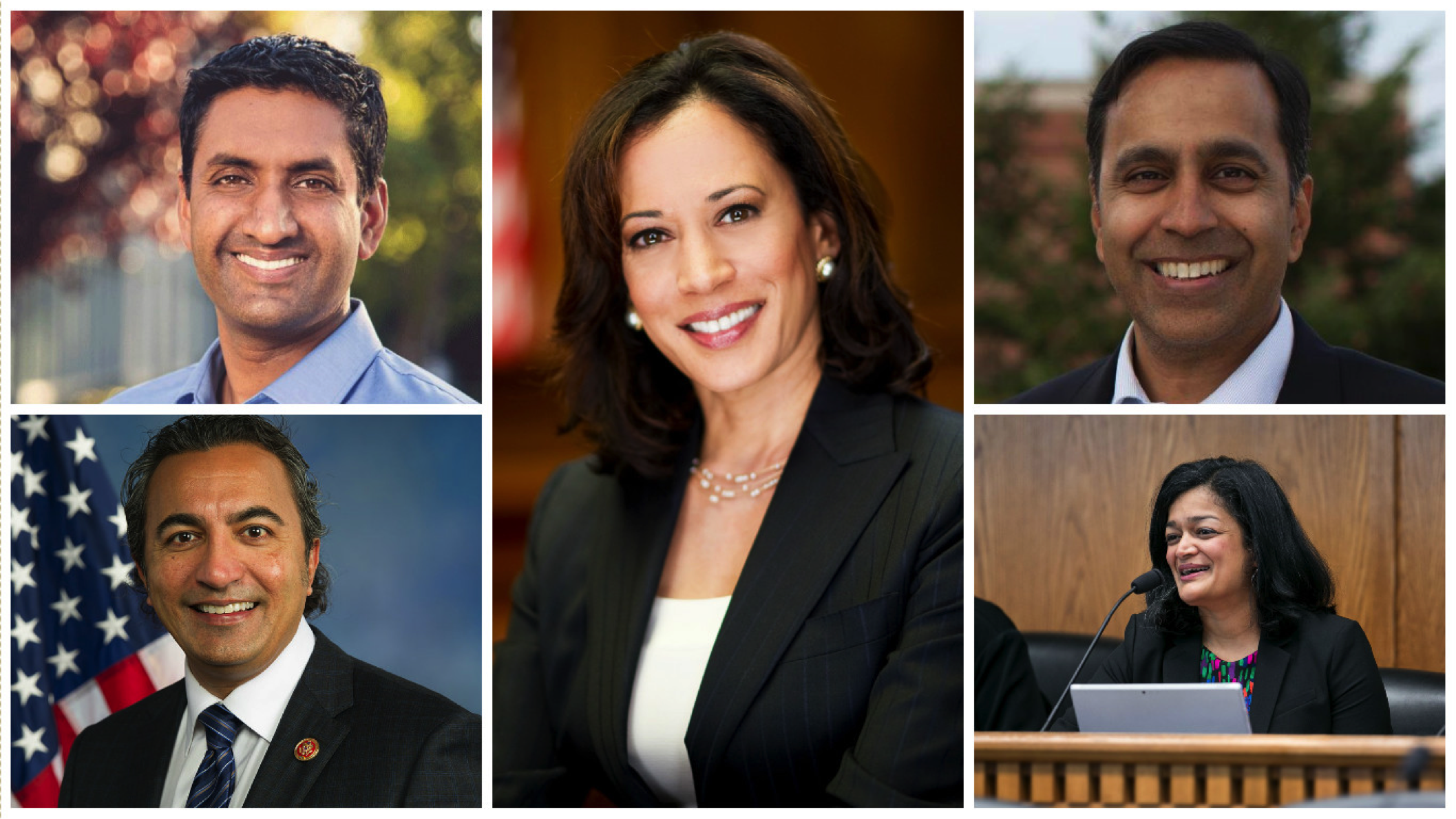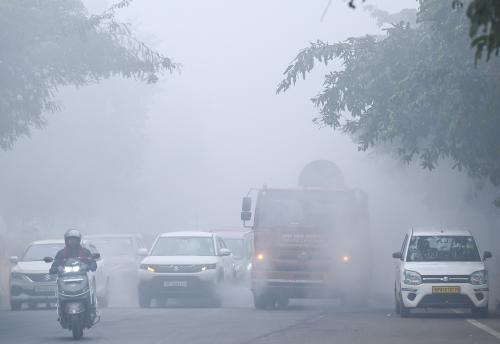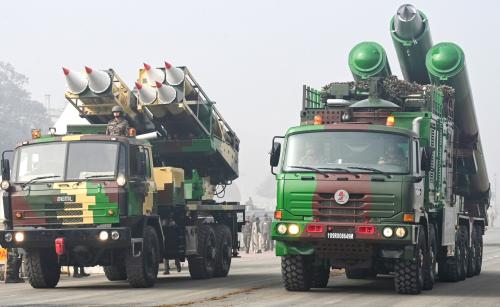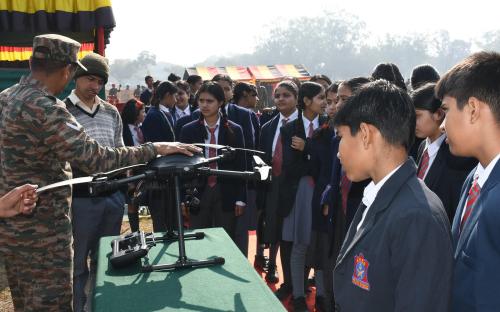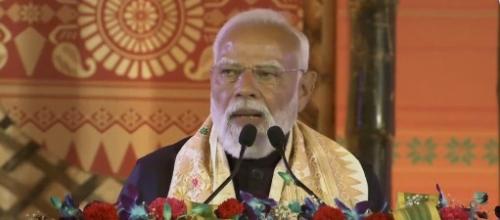Special to India Tribune
The Indian diaspora has become an influential part of American society, contributing significantly to various sectors including technology, healthcare, education, business, and politics. To envision America without the Indian diaspora requires an examination of the substantial void their absence would create, particularly in the realm of mainstream politics. The Indian-American community has emerged as a powerful force in American politics, shaping policies, championing issues of importance, and enhancing the multicultural fabric of the nation. Without their presence, the political landscape in the United States would be markedly different, lacking in diversity, advocacy for certain issues, and global perspectives.
Indian Americans are one of the fastest-growing ethnic groups in the United States. They have made notable strides in political participation, with several individuals holding prominent positions in government. Kamala Harris, the Vice President of the United States, whose mother was Indian, represents a significant milestone for the community. Her presence in such a high office highlights the increasing political clout of Indian Americans. Without the Indian diaspora, such representation would be absent, and the progress towards greater diversity and inclusion in American politics would be slowed.
The political impact of the Indian diaspora extends beyond individual representation. Indian Americans have actively engaged in political advocacy, often focusing on issues such as immigration reform, civil rights, healthcare, and education. Organizations like the Indian American Impact Fund have worked to support and elect Indian American candidates across the country. Their efforts have helped bring attention to issues that might otherwise be overlooked. The absence of these advocacy groups would mean fewer voices championing these causes, resulting in a narrower policy agenda that does not fully reflect the diversity of American society.
The Indian diaspora has also contributed to the strengthening of U.S.-India relations, which are crucial for geopolitical and economic reasons. Indian Americans serve as a bridge between the two countries, fostering diplomatic and economic ties. Their cultural and familial connections with India help facilitate better mutual understanding and cooperation. Without the Indian diaspora, this bridge would be weakened, potentially leading to less robust bilateral relations. This could impact trade, security, and diplomatic initiatives that benefit both nations.
In terms of political donations and grassroots mobilization, Indian Americans have become increasingly influential. They have contributed significant financial resources to political campaigns and have been active in voter registration and turnout efforts. This financial and grassroots support has given them a voice in shaping political platforms and priorities. The absence of this support would result in a loss of a crucial funding source and volunteer base for many political candidates, particularly those who advocate for issues important to minority communities.
Moreover, the Indian diaspora has played a vital role in promoting multiculturalism and inclusivity within American politics. Indian festivals, cultural events, and media have become more prominent, enriching the cultural landscape of the United States. This cultural influence has also found its way into political discourse, promoting greater acceptance and celebration of diversity. Without the Indian diaspora, American politics would be less reflective of the country's multicultural reality, potentially leading to policies that are less inclusive and more narrowly focused.
The impact of the Indian diaspora on American politics is also evident in the realm of policy-making and public service. Indian Americans hold key positions in various governmental and advisory bodies, influencing policy decisions that affect millions of Americans. Their expertise in fields such as technology, healthcare, and education has been invaluable in crafting informed and effective policies. The absence of Indian American professionals in these roles would mean a loss of critical expertise and perspectives, leading to potentially less effective policy outcomes.
Furthermore, the Indian diaspora's involvement in politics has helped challenge stereotypes and combat discrimination. Indian Americans have worked to promote civil rights and social justice, advocating for policies that protect minority communities from discrimination and bias. Their efforts have contributed to a more equitable society and have helped ensure that the American political system is more representative and fair. Without these contributions, the progress towards social justice and equality would be hindered, leaving minority communities more vulnerable to systemic inequalities.
The influence of the Indian diaspora on American politics is also visible in the increased focus on technology and innovation. Indian Americans have been leaders in the tech industry, driving advancements and contributing to economic growth. This technological expertise has found its way into political advocacy and policy-making, promoting innovation-friendly policies that support research, development, and entrepreneurship. Without the Indian diaspora, there would be a noticeable gap in the advocacy for technology-driven policies, potentially slowing down the pace of innovation and economic growth in the United States.
Additionally, the Indian diaspora has contributed to the diversification of political perspectives and ideologies. Indian Americans hold a range of political views, from conservative to liberal, enriching the political discourse with their diverse perspectives. This ideological diversity helps create a more balanced and comprehensive political environment, where multiple viewpoints are considered and debated. The absence of this diversity would result in a more homogenized political landscape, lacking the depth and breadth of perspectives that contribute to a healthy democracy.
Finally, the Indian diaspora's participation in American politics has set a precedent for other immigrant communities, demonstrating the importance and impact of political engagement. Their success stories serve as an inspiration and model for other minority groups, encouraging greater political participation and representation. Without the Indian diaspora, this inspirational example would be missing, potentially leading to lower levels of political engagement among other immigrant communities.
In conclusion, the Indian diaspora has had a profound impact on mainstream politics in the United States. Their contributions have enriched the political landscape, promoting diversity, inclusivity, and innovation. They have helped shape policies, fostered better U.S.-India relations, and advocated for social justice and civil rights. Imagining America without the Indian diaspora reveals a country with a less vibrant, diverse, and dynamic political environment. The absence of their influence would mean a significant loss of cultural, economic, and political contributions that have helped shape the United States into a more inclusive and forward-thinking nation.


